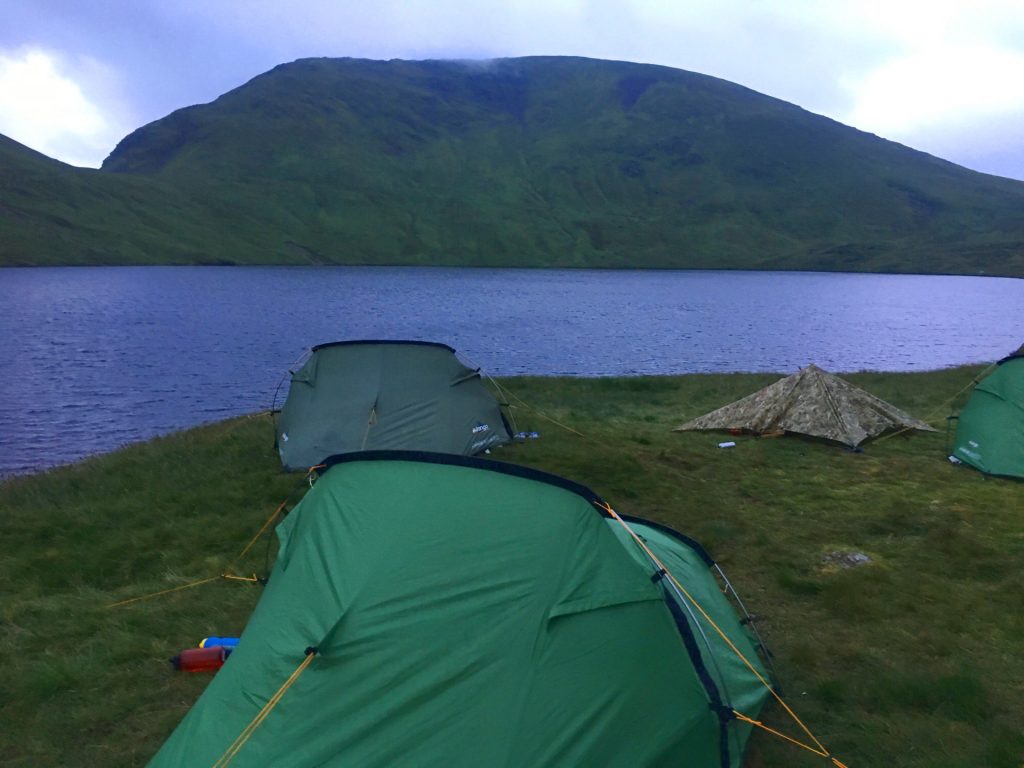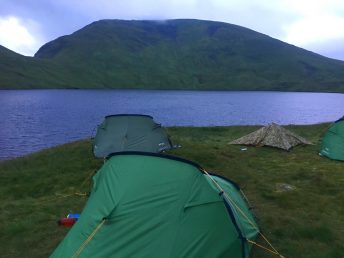
Wild camping can be a lot of fun. For some remote trips, it will be your only option for a night’s sleep – but even when campsites or accommodation are available, it can be a great way to reduce the cost of your trip or to experience the outdoors differently. Wherever you wild camp, though, it’s important to do it legally, and in a way that respects the countryside and the people and wildlife who live there. If you’re new to wild camping check out our guide – or keep reading for a breakdown of the wild camping laws in the UK.
The wild camping laws are different in different parts of the country. Make sure you know where you’re going and which part of the law applies. None of the information on this page is legal advice – you are still responsible for the legality of what you do, whatever you read on this page or elsewhere.
Wild Camping Laws in England
Wild camping in most of England is illegal (without explicit permission from the landowner). However, it is accepted (and common) in some places. These places include the larger National Parks (such as the Lake District), where it is usually acceptable to camp on open moorland, so long as you’re away from (and definitely out of sight) of any buildings or farming activity.
In general, if you camp up on moorland, above the highest fields, and out of sight of settlements and houses (and of course respecting the area you’re camping in), this is fine.
Camping in farmers’ fields, people’s gardens or public parks (without the explicit permission of the landowner) is not acceptable.
Dartmoor
Dartmoor is the only part of the UK where you don’t need a landowner’s explicit permission to wild camp. But even there, it is only allowed in some places and under certain conditions. The Dartmoor National Park’s website contains information on these terms, and which areas permit camping.
Wild Camping Laws in Scotland
Scotland is a slightly different case to the rest of the UK. Thanks to the Land Reform Act (Scotland) 2003, wild camping is generally permitted in Scotland, so long as you follow the Scottish Outdoor Access Code. Basically, if you follow Leave No Trace principles (which of course apply everywhere), and camp in a responsible way, wild camping is permitted in most places. As with England, camping in people’s gardens or public parks (without the explicit permission of the landowner) is not acceptable. Additionally, you should avoid camping in enclosed land (fields), and camp away from roads. You should also not stay in the same place for more than “two or three nights” (from the Code).
Wild Camping Laws in Wales
The wild camping laws in Wales are much the same as in England – camping (without landowner permission) is illegal.
Wild Camping Laws in Northern Ireland
In Northern Ireland, like in England and Wales, wild camping is not legal without the explicit permission of the landowner.
Other Points
In addition to the law, it’s important to be aware of the ethics of wild camping before you go out. This means principles like Leave No Trace, and sticking to local codes. Codes include the Scottish Outdoor Access Code and the Lake District’s guidance – and many other National Parks will have their own information. Always make sure you leave your camp spot better than you found it.

